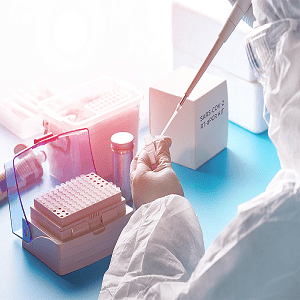Frequently Asked Questions About CoVID-19 Molecular Testing
After obtaining the necessary approvals from the competent authorities, including the Vice Chancellor for Treatment of the University and the Office of Laboratory Affairs of Shahid Beheshti University of Medical Sciences and the Health Reference Laboratory, Payvand Clinical & Specialty Laboratory has obtained a license to perform a molecular test for covid 19 (CoVID-19). This test can be performed on a daily basis and all steps are performed according to the latest national and international guidelines with the best level of accuracy and speed. Here are some common questions about this test.
The Payvand Clinical & Specialty Laboratory offers a specialized molecular (PCR) diagnostic test for acute respiratory coronavirus (SARS-CoV-2) to help diagnose COVID-19 infection. In molecular experiments recommended by the World Health Organization (WHO) as screening tests for COVID-19, the specific targets and locations of the virus genome, including (Orf) Open reading frame, Envelop genes and viral nucleotapsid genes, or RNA-dependent RNA, are commonly identified and examined.
Sampling is recommended for testing SARS-CoV-2 from the upper respiratory tract, nasopharynx (nasal-pharyngeal and oral-pharyngeal swabs) and, if possible, the lower respiratory tract (sputum, chip aspiration, or bronchoalveolar lavage).
A positive PCR test shows that RNA of SARS-CoV-2 virus is present and is a diagnosis of COVID-19. The results of the test should always be considered in the patient’s clinical history, the result of the physical examination, and the chances of the patient being exposed to the virus for the final diagnosis.
In areas where CoVID-19 is prevalent, if the initial test is negative but there is still a suspicion of CoVID-19 disease, the World Health Organization recommends re-sampling and testing from several parts of the respiratory tract. Here are some of the most important factors that can lead to a negative result in an infected person:
- Low quality or low sample size. (To check the quality of nucleic acid, it is recommended that a human gene be tested simultaneously as a control on the sample.)
- Collect samples very early or too late in the course of the disease
- Improper storage or transportation of samples
- Technical reasons during the work process and laboratory equipment
This test should only be requested for patients who have current clinical or epidemiological criteria defined by the country’s health authorities.


